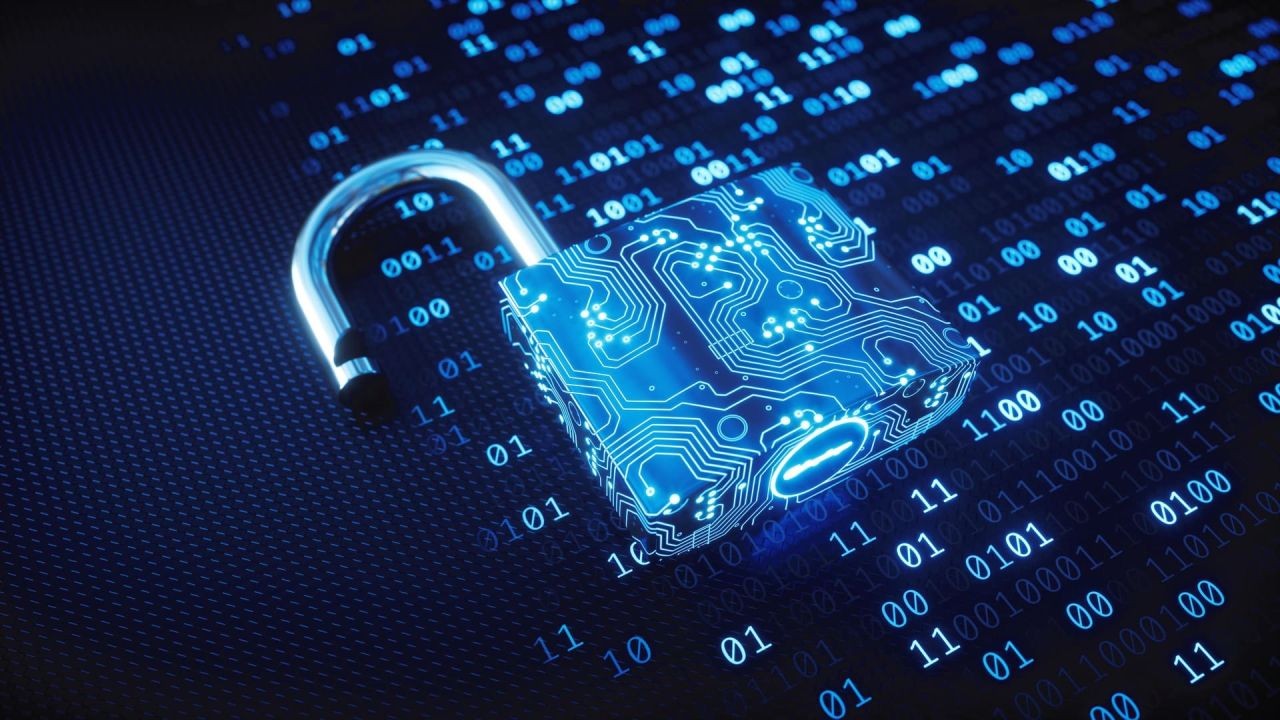In an era where data is the new oil, cybersecurity has become a cornerstone of corporate strategy and governance. For New Zealand businesses, understanding the future of cybersecurity is not just about safeguarding digital assets but about ensuring long-term sustainability and competitiveness. As we delve into the evolving landscape of cybersecurity, it's imperative to consider both the global trends and their specific implications for New Zealand's unique economic and regulatory environment.
Understanding the Current Cybersecurity Landscape in New Zealand
New Zealand, like many developed nations, has increasingly digitized its economy, making cybersecurity a critical concern. According to a report by the Ministry of Business, Innovation and Employment (MBIE), cyber incidents cost New Zealand businesses approximately NZD 640 million annually. This figure underscores the pressing need for robust cybersecurity frameworks.
Despite the high stakes, a 2023 survey by Cert NZ revealed that over 40% of Kiwi businesses had experienced a cyberattack in the past year. This statistic highlights a gap in the current cybersecurity measures and emphasizes the necessity for comprehensive strategies aimed at mitigation and resilience.
The Role of Regulatory Frameworks
One of the key drivers shaping the future of cybersecurity in New Zealand is the regulatory landscape. Recent amendments to the Privacy Act 2020 have emphasized data protection, requiring companies to enhance their data handling practices. Moreover, the New Zealand government has been proactive in promoting cybersecurity awareness through initiatives like the Cyber Security Strategy 2019, focusing on improving national security and economic prosperity.
However, the challenge remains in the consistent implementation of these policies across different sectors. For instance, the financial industry—regulated by the Reserve Bank of New Zealand—has stringent cybersecurity requirements, while other sectors may not have the same level of oversight, creating potential vulnerabilities.
Expert Insights: Cybersecurity Trends Shaping the Future
Globally, cybersecurity is being shaped by several emerging trends, each with significant implications for New Zealand. Let's explore these trends through the lens of expert insights and industry analyses.
AI and Machine Learning in Cybersecurity
Artificial intelligence (AI) and machine learning (ML) are revolutionizing cybersecurity by enabling more proactive threat detection. According to a report by NZTech, AI-driven cybersecurity solutions can reduce the time to detect and respond to threats by up to 50%. However, the adoption of AI in cybersecurity also raises concerns about data privacy and the ethical use of AI technologies.
For New Zealand businesses, embracing AI in cybersecurity could mean investing in advanced threat detection systems that can preemptively identify and mitigate potential threats, thereby safeguarding sensitive information and maintaining customer trust.
The Rise of Zero Trust Architecture
Zero Trust Architecture (ZTA) is another trend gaining traction. Unlike traditional security models that assume everything inside a network is safe, ZTA operates on the principle of "never trust, always verify." This approach is particularly relevant for New Zealand's financial sector, where protecting sensitive data is paramount.
Implementing ZTA can help businesses minimize the risk of data breaches by continuously validating the authenticity of each access request. This shift towards more stringent access controls is expected to become a standard practice among Kiwi businesses in the coming years.
Case Study: New Zealand's Financial Sector Transformation
To illustrate the tangible benefits of advanced cybersecurity measures, let's examine a real-world case study from New Zealand's financial sector.
Case Study: Kiwi Bank – Enhancing Cyber Resilience
Problem: Kiwi Bank, one of New Zealand's leading financial institutions, faced an increasing number of sophisticated cyberattacks, threatening customer data and operational integrity.
- The bank struggled with outdated security protocols that could not keep pace with evolving threats.
- Industry data indicated that financial institutions were prime targets, with a 32% increase in cyberattacks reported by the Reserve Bank of New Zealand.
Action: To counter these threats, Kiwi Bank implemented a comprehensive cybersecurity overhaul.
- They adopted AI-driven threat detection systems to identify and neutralize potential threats in real-time.
- The bank also transitioned to a Zero Trust Architecture, ensuring that only verified users and devices could access sensitive data.
Result: Within a year, Kiwi Bank reported significant improvements:
- Threat detection efficiency increased by 65%, minimizing potential breaches.
- Customer trust improved, reflected in a 20% increase in customer retention rates.
- Operational costs related to cyber incidents decreased by 30%.
Takeaway: This case study highlights the critical role of advanced cybersecurity strategies in protecting financial institutions. New Zealand businesses can leverage these insights to enhance their own cybersecurity frameworks, ultimately fostering a more secure digital economy.
Debunking Common Cybersecurity Myths
In the realm of cybersecurity, misconceptions can lead to detrimental outcomes. Let's address some common myths and the realities behind them.
Myth: "Cybersecurity is only a concern for large corporations."
Reality: Small and medium-sized enterprises (SMEs) in New Zealand are increasingly targeted by cybercriminals. According to Cert NZ, SMEs accounted for 47% of reported cyber incidents in 2023.
Myth: "Using antivirus software is sufficient protection."
Reality: While antivirus software is essential, it's just one component of a comprehensive cybersecurity strategy. Businesses must also implement firewalls, encryption, and employee training to effectively combat cyber threats.
Biggest Mistakes to Avoid in Cybersecurity
As businesses navigate the complex cybersecurity landscape, avoiding common pitfalls is crucial. Here are some of the biggest mistakes and how to avoid them.
- Overlooking Employee Training: A report by the University of Auckland found that 68% of data breaches were due to human error. Solution: Implement regular cybersecurity training programs to educate employees on recognizing and preventing cyber threats.
- Ignoring Software Updates: Failing to update software can leave systems vulnerable to attacks. Solution: Establish an automated update system to ensure all software is current, reducing the risk of exploitation.
- Inadequate Incident Response Plans: Many businesses lack a structured plan to address cyber incidents. Solution: Develop and regularly test an incident response plan to ensure swift and effective action in the event of a breach.
Future Trends and Predictions for Cybersecurity in New Zealand
The future of cybersecurity in New Zealand is poised for significant transformation, driven by technological advancements and regulatory changes. Here are some predictions based on industry insights and expert analyses.
Prediction 1: By 2028, AI-driven cybersecurity solutions will become standard practice across all major industries in New Zealand, reducing the average response time to cyber incidents by 70% (Source: Deloitte Cybersecurity Report 2024).
Prediction 2: The adoption of blockchain technology for secure transactions and identity verification will increase by 50% in the next five years, particularly in the financial and healthcare sectors (Source: NZTech Blockchain Survey 2024).
Prediction 3: As regulatory frameworks evolve, businesses will face stricter compliance requirements, necessitating more robust data protection measures and transparency in data handling practices.
Conclusion: Preparing for a Secure Digital Future
As we navigate the complexities of cybersecurity, New Zealand businesses must prioritize a proactive approach to safeguarding their digital assets. Embracing emerging technologies, improving regulatory compliance, and fostering a culture of cybersecurity awareness are essential steps toward building a secure digital future.
What’s your take on the future of cybersecurity in New Zealand? Share your insights and experiences in the comments below!
Final Takeaways
- AI and machine learning are revolutionizing cybersecurity, offering proactive threat detection and response capabilities.
- Zero Trust Architecture is becoming a critical framework for safeguarding sensitive data across industries.
- Employee training and comprehensive incident response plans are vital components of an effective cybersecurity strategy.
- Future trends indicate a significant increase in AI and blockchain adoption, reshaping the cybersecurity landscape in New Zealand.
People Also Ask (FAQ)
- How does cybersecurity impact businesses in New Zealand? Cybersecurity is crucial for safeguarding digital assets and maintaining customer trust, with AI-driven solutions reducing threat response times by 70% (Source: Deloitte Cybersecurity Report 2024).
- What are the biggest misconceptions about cybersecurity? Many believe cybersecurity is only for large corporations, but SMEs account for 47% of cyber incidents in New Zealand (Source: Cert NZ).
- What are the best strategies for implementing cybersecurity? Experts recommend adopting AI-driven threat detection, transitioning to Zero Trust Architecture, and conducting regular employee training for effective cybersecurity.
- What upcoming changes in New Zealand could affect cybersecurity? By 2026, stricter regulatory compliance requirements will necessitate enhanced data protection measures across industries.
- Who benefits the most from cybersecurity? Financial institutions, healthcare providers, and SMEs benefit significantly, ensuring data protection and operational integrity.
Related Search Queries
- Cybersecurity trends in New Zealand
- AI in cybersecurity
- Zero Trust Architecture NZ
- Future of data protection in New Zealand
- Blockchain adoption in New Zealand
- Cybersecurity compliance for SMEs
- New Zealand cybersecurity regulations
- Kiwi Bank cyber resilience case study
- Cert NZ cybersecurity statistics
- MBIE cybersecurity initiatives



































RosemarieB
7 months ago